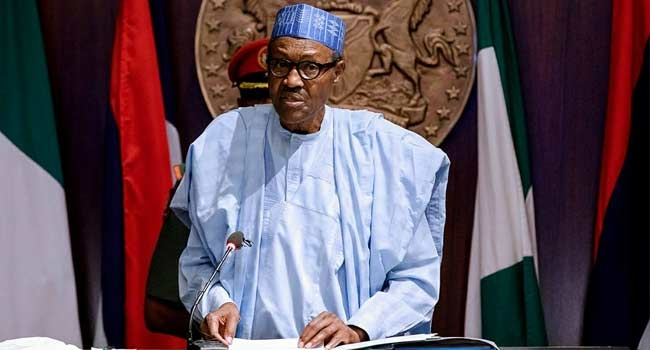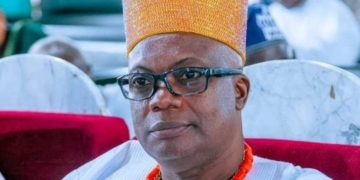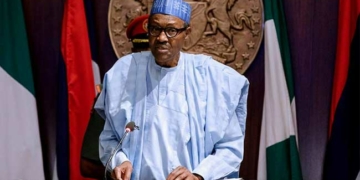By John Uche Madu
Three sentimental and reverting factors have always and obstinately defined the character of Presidential elections in Nigeria. The search for a President by Nigerians in every political dispensation usually throws up mawkish issues like tribe, religion and sectionalism. Nigeria has been saddled with bad leaders in the past because of the passionate and servile attachment to these sentiments in leadership recruitment.
The 2019 presidential elections had its fair share of such campaigns against incumbent President Muhammadu Buhari, who was seeking reelection. Every performance indices pointed at him as a leading candidate in the elections. He eventually coasted home to victory in a fiercely contested ballot. But there was an apparent gang-up and conspiracy designed to water down the value of his candidature in the eyes of the Nigerian citizens in order to cause his massive rejection at the polls.
And the conspiracy against President Buhari started with the assemblage of 42 opposition parties under the aegis of Coalition of United Political Parties (CUPP); later on, the Civil Society Organizations’ (CSOs), Niger Delta Militant groups and also Christian Association of Nigeria (CAN) and the National Christian Elders Forum (NCEF) followed suit in actively positioning themselves to oppose the Buhari candidature.
It was a hellish time for President Buhari in defending the mountain of malicious allegations heaped on his personality and candidature. Various attempts were made to pull apart the cord of unity, togetherness and fraternity in Nigeria. Some of the groups resorted to preaching sermons which questioned their patriotism to the country.
Unfortunately, Nigerians listened to them but never believed the hackneyed tales. The President’s strength of character, uprightness, integrity, incorruptibility and proven performance records spanning decades in public leadership in the end came to fore. These attributes triumphed against all odds as reflected in the final poll results.
The President-elect who contested on the platform of the ruling APC trounced his closest rival, former Vice President Atiku Abubakar of the PDP with a winning margin of over four million votes. President Buhari won outrightly in 19 states, while Atiku got 17 states and the FCT.
The presidential election results surprised the PDP and the members of the CUPP. The CUPP led by Chief Olagunsoye Oyinlola, who told Nigerians through a signed Memorandum of Understanding (MoU) that “… the point we are in in the life of our nation and our democracy is the unification of all progressives forces to rescue this country.” But sadly, the coalition had no agenda for the country and Nigerians saw through their shenanigans.
The presidential candidate of the Allied Congress Party of Nigeria, Dr. Mrs Oby Ezekwesili joined the fray stylishly. She withdrew from the presidential race, but neither adopted APC nor PDP as an option. She said, “I have decided to step down from the presidential race and focus on helping to build a Coalition for a viable alternative to the #APCPDP in the 2019 general elections. This coalition for a viable alternative has now more than ever before become an urgent mission for and on behalf of the citizenry.”
But even in the house of coalition of the opposition, dissenting voices resonated loudly. And many of the 20 opposition political parties the PDP co-opted into the dubious scheme distanced themselves from the said alliance and unholy plot to unseat Buhari. The Peoples Democratic Movement’s (PDM) national Chairman, Alhaji Bashir Yusuf Ibrahim said of the CUPP; The only thing in their MoU is to agree to capture power in 2019. Their programme has not been made known to the Nigerian public. We will not be part of a coalition that does not have a programme for Nigeria.”
Unmistakably, the president’s opponents knew far ahead of time that it was impossible to defeat him no matter the array of forces aligned against him. Buhari’s victory at the polls was not attributed to any use of the power of incumbency, but the genuine passion that majority of Nigerians, especially the downtrodden had for his leadership disposition. Most Nigerians wished he continued in office beyond 2019.
However, realizing Buhari was unbeatable, they embarked on plain subterfuge to weaken his candidature. They sought to divide the country by playing the ethnic and religious cards. They possibly instigated crises and killings in parts of the country. It was curious that Boko Haram insurgency resurged in parts of the Northeast to diminish Buhari’s laudable impact on security.
Elsewhere, in the South-South, militant sects were vocal in condemnation of the Buhari Presidency, and intermittently churned out threats to breach of public peace and security. These politicians emboldened fresh militant groups to sprout up in the South-South, scaling up Nigeria’s defence spending to as much as $4 billion annually, the third highest in Africa.
The splinter militant groups included the Niger Delta People’s Volunteer Force; the Niger Delta Liberation Front; Niger Delta Avengers; Biafra Avengers; Red Egbesu Water Lions; Asawana Deadly Force of the Niger Delta, the Adaka Boro Marine Commandos; the Utorogon Liberation Movement; Joint Niger Delta Liberation Force; and the Joint Revolutionary Council of the Joint Niger Delta Liberation Force.
Others were the Red Scorpion; the Ultimate Warriors of the Niger Delta; the Niger Delta Red Squad; Niger Delta Vigilante; the Niger Delta Greenland Justice Mandate; the Ijaw/Oduduwa Militant Movement (in Ogun and Lagos States) and Benue’s Agatu Warriors.
Also the Nnamdi Kanu-led Indigenous Peoples of Biarfra (IPOB) intensified tension in the Southeast, through violent separatists’ campaigns ‘and killings. Every attempt to checkmate their excesses saw a reciprocal condemnation of the Buhari Presidency by masked masters.
And in scores of places in the Middle Belt region, herdsmen killers were recruited to add to the barrage of subsisting troubles with gruesome killings and perpetration of acts of arson, which pitched ethnic groups against themselves. However, at the commencement of campaigns, the Buhari phenomenon could not be easily quenched as his popularity soared higher and higher.
Meanwhile, CAN was informally enlisted in the opposition campaigns against the candidature of President Buhari to elicit or exacerbate hatred against him. CAN’s National President, Rev. Sampson Ayokunle declared fasting and prayers from the Christian community in Nigeria in favour of Christian presidential candidates in the race.
He said, “We are to pray for all Christians contesting for one post or the other for the will of God to be done concerning their ambition, and that the powerful in our nation will not be able to manipulate the election and edge them out…That God should stop all groups behind the killings in Nigeria and their financiers, and that 2019 should be a new dawn for Nigeria.”
The Nigerian Christian Elders Forum (NCEF), amplified these religious hate messages. Its national secretary, Pastor Bosun Emmanuel persuaded Christians to vote out President Buhari. He claimed the President “is openly pursuing an anti-Christian agenda that has resulted in countless murders of Christians all over the nation and destruction of vulnerable Christian communities”.
But at last, the ballot proved otherwise and through votes dissolved all the hate speeches and campaign messages. The masses spoke defiantly against the conspiracy theories as Buhari won his reelection with a votes difference of a whooping over million, both in Christian and Muslim areas convincingly. Nigerians disappointed CAN, the NCEF, ethnic bigots/warlords and all those who thought religion or tribe could still be a basis to elect a President for Nigeria.
Thus, Buhari’s presidential election victory signals the end of ethnic and religious politics in Nigeria. The result of Buhari’s presidential contest stupefied his opponent and major challenger as well as his clan of power undertakers. It is a new vista for unity in Nigeria.
The re-emergence of President Buhari is a loud statement from Nigerians that the odd things which once held the country back have been flushed out of national psyche and gone forever. Nigerians look forward to a new Nigeria or nation, where a Nigerian performer is seen as a Nigerian and success is celebrated by all and sundry. Religion or ethnicity are no longer the basis for defining national life or leadership.
Madu wrote this piece from Lagos, Nigeria.






Discussion about this post